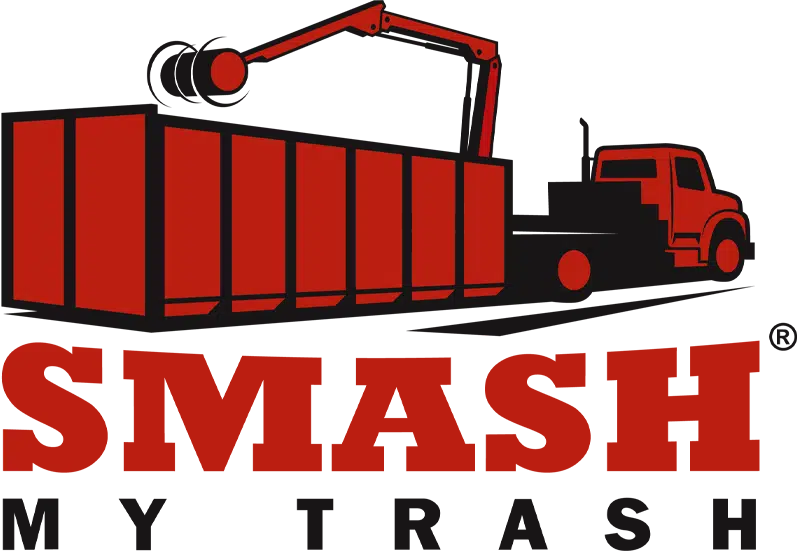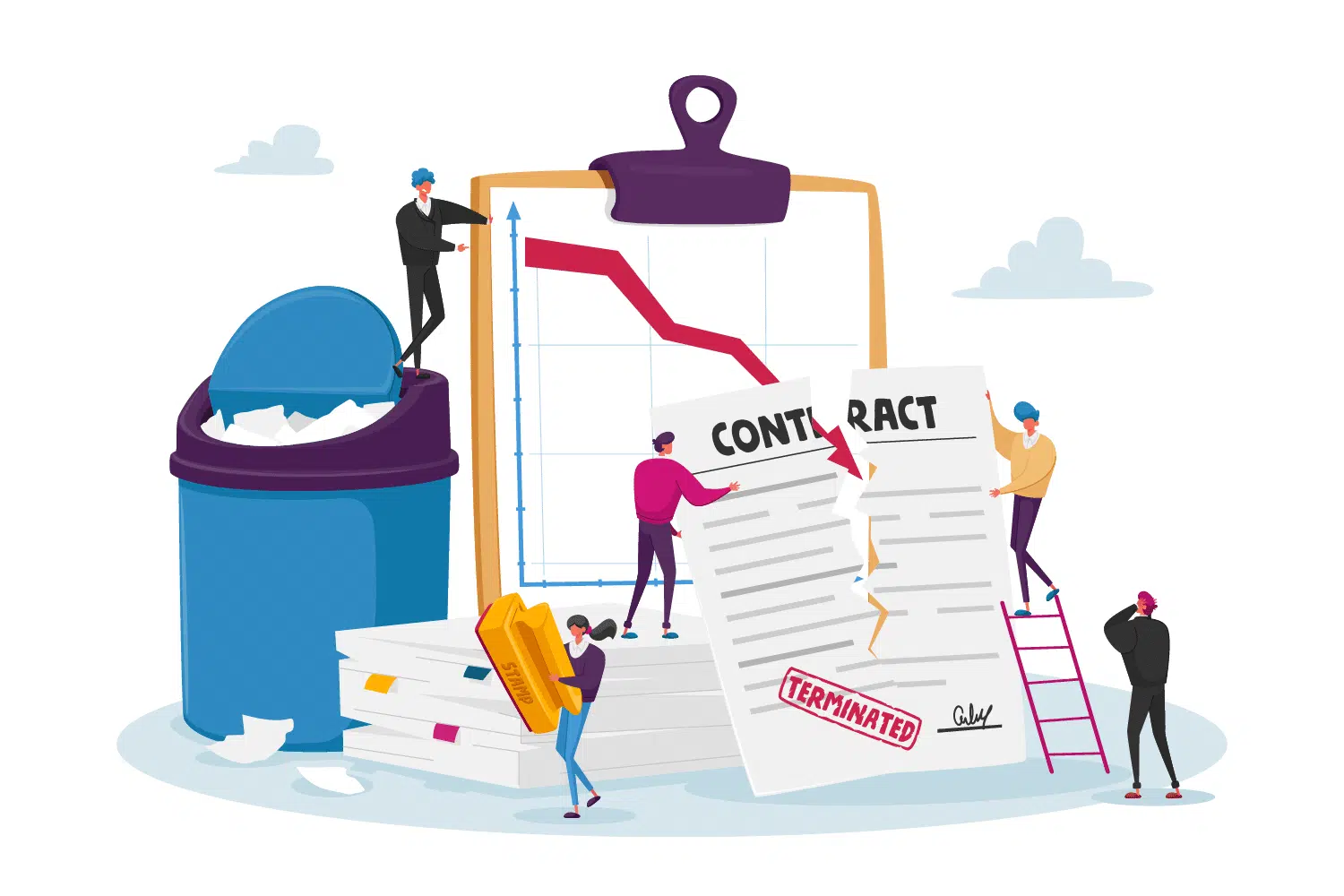If you run a small business, your dumpster waste may not feel like a big concern, but as growth happens, waste management costs can skyrocket. Managing dumpster waste can require a variety of game plans that aren’t always dependent on just your business.
Today we’ll be discussing the ins and outs of dumpster waste management. What is it, why is it important to manage, and how can it benefit your business to have an effective game plan as you grow?
What is Dumpster Waste?
Dumpster waste is anything a business disposes of in a dumpster. It can include everything from normal maintenance waste inside of an office, to organic waste like garden or lawn trimmings within the business premises.
Even by-product waste like wrappers of a sandwich or containers created by a business falls under the dumpster waste umbrella. Distribution centers, restaurants, commercial construction, manufacturing, wholesale, even accommodation services all create dumpster waste.
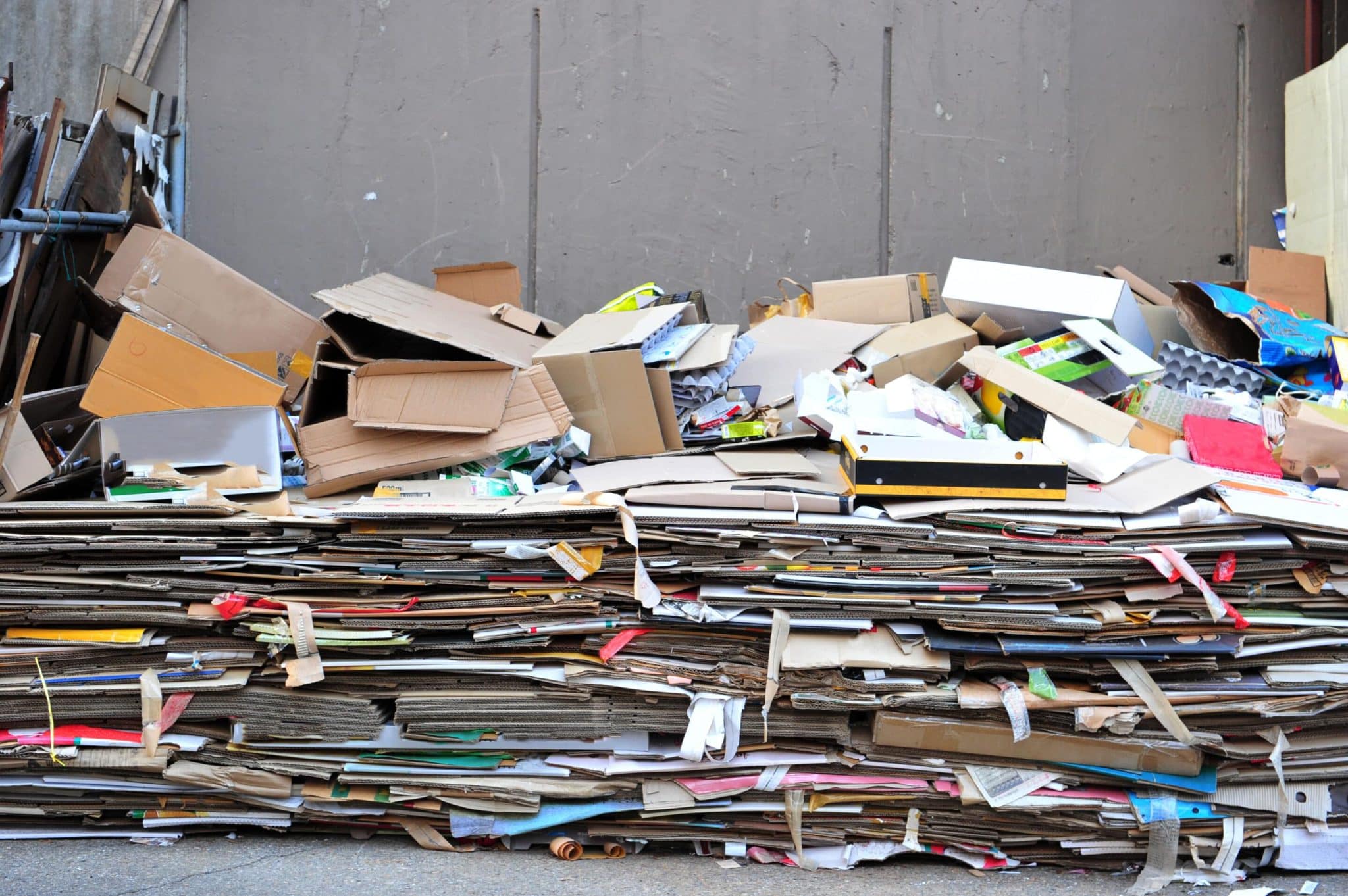
Why is Dumpster Waste Management Important?
Waste management’s importance grows every day as our global waste issue continues to threaten the way society conducts business. Pressure from green political initiatives, fleeting resources, and rising CO2 emissions are all part of why it’s in every business’s best interest to improve how they manage their dumpster waste.
Though managing dumpster waste might look different for every business, generating waste remains a constant for everyone. With strict disposal guidelines, it’s critical to implement proper waste management practices to keep your business safe and compliant.
In today’s business environment, sustainability is essential to long-term success. Stronger waste management practices have become a popular consideration as businesses move towards greener operations.
More beneficial reasons for investing in dumpster waste management include:
- Inappropriate disposal of waste materials can result in unnecessary accumulation of waste in landfills.
- This accumulation of waste contributes to a bigger pollution issue for the community and the environment as a whole.
- Depending on a business’s location & industry, improper waste disposal may be illegal.
- Inefficient dumpster waste practices can affect operations budgets as hauler trips and open-top bins are needed.
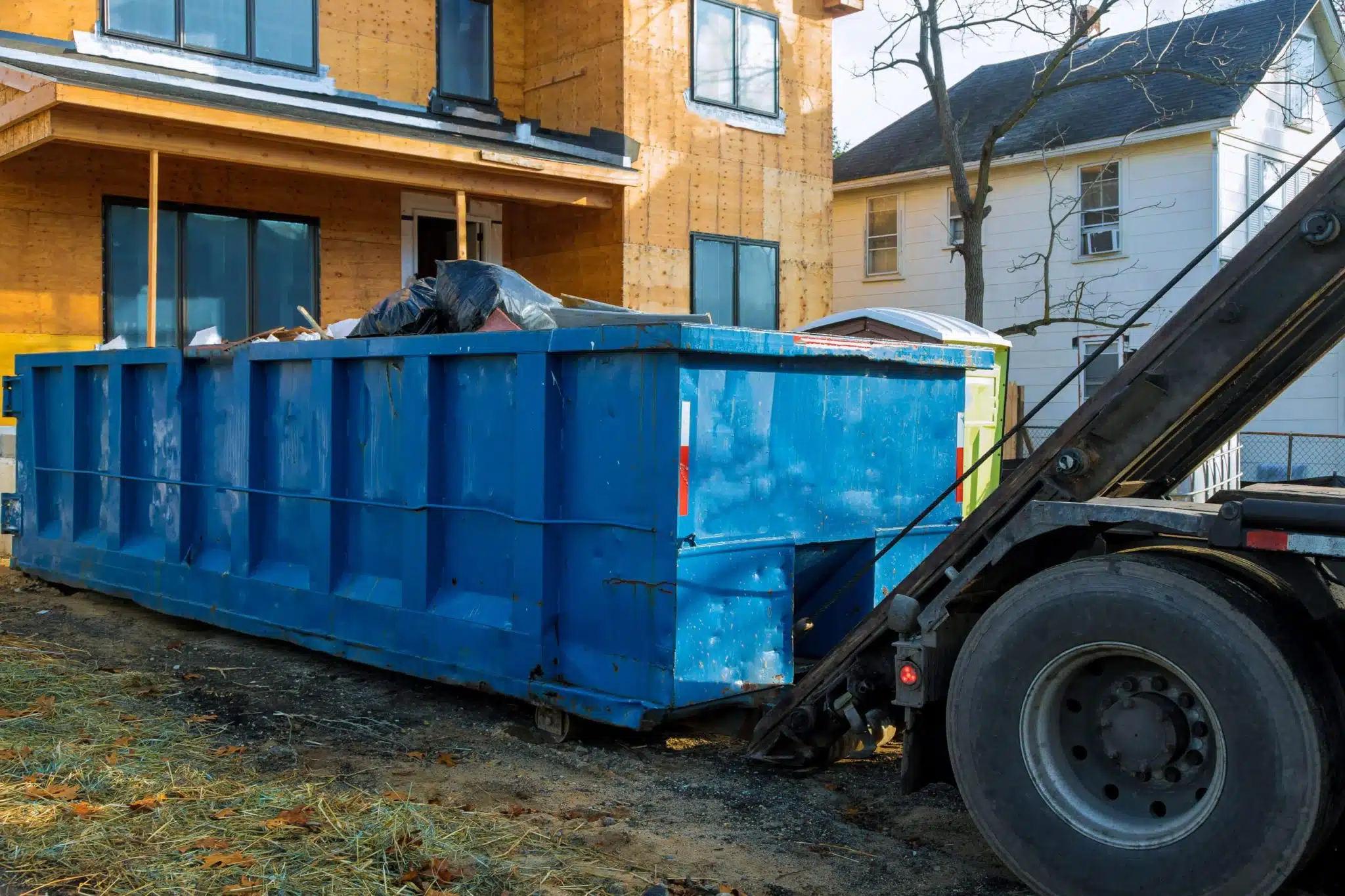
Benefits of Dumpster Waste Management
Proper waste management practices can lead to proactive long-term results that improve the bottom line and the environment. Even if it isn’t possible to lower waste generated on a weekly basis, finding new ways to manage dumpster waste can yield unexpected positive results.
Safeguarding infrastructure on the premises and conserving total landfill space allow for business longevity to improve. This helps businesses maintain their customer base and keep the doors open into the future.
Save Money
Reducing operation costs is all about taking advantage of opportunities that are available. Introducing a recycling program doesn’t have to be the only alternative associated with waste management practices. Though recycling is an effective measure for improving the environment, mobile waste compaction provides real cost savings and lowers greenhouse gas emissions.
There’s significant saving potential for businesses with large amounts of dumpster waste. Mobile waste compaction improves open-top dumpster space, in-turn allowing for a high volume of waste in each dumpster. Less hauls means lower operation costs.
Promote Sustainability
Sustainable company practices can earn businesses massive trust amongst their customer base and improve their carbon footprint. Meeting big objectives like carbon reduction goals is possible with mobile compaction services supplementing recycle and reuse strategies. By compacting waste, you are conserving total landfill space, reducing the amount of trucks on the road, and lowering total CO2 emissions. All which have a measurable impact on your business and the surrounding communities.
Make Smarter Decisions
Strategic changes to operation aren’t always considering waste management practices. By understanding the amount and types of waste produced by day-to-day business, it becomes easier to identify ways to reduce waste costs and utilize recycling services. Consider the amount of cardboard unnecessarily being thrown away, pallets and bulky objects taking up space, or even how to manage defective products.
Safeguarding Employees
Overflowing bins of waste can have indirect consequences to the efficiency of an operations team and the flow of business. It can leave hazardous materials exposed to workers, putting them at risk of injury or vulnerable to inhaling dangerous fumes.
No employee should be required to climb into dumpsters to tamp down waste and risk harming themselves. Building a waste management plan that includes a mobile waste compaction service helps maintain a proper balance of bin capacity and protects workers from harm.
5 Tips for Reducing Dumpster Waste
There are some very simple, yet important waste management guidelines that everyone should follow to build a more sustainable plan. It should be approached like most goals or objectives in an organization: evaluation, planning, execution, and measured success.
Conduct a Waste Audit
Evaluating the current waste management process should be where every business begins. Make note of the volume of trash coming in daily, the type of waste generated, how many hauls you average a month, and the costs associated with labor or services involved. This allows for opportunities to pinpoint weaknesses and identify areas in need of improvement.
It’s also a great opportunity to set realistic goals to track progress. The more statistics you can provide, the easier it’s going to be to prove growth as your business implements waste management changes and benefits from real costs savings.


Start an Internal Waste Management Team
Depending on the size of your organization, bringing a waste management team in-house is a great way to stay on top of a dumpster waste management plan throughout the years. They can assist in conducting a waste audit, handle all communication and scheduling with waste services, and stay on top of the goals necessary for reaching waste reduction goals or carbon emission targets.
Adding individuals from all levels of the organization to this team can help achieve a more holistic approach to waste management practices and goals. This brings a necessary divide between operations and waste management, maintaining a balance between the two teams and empowering workers to own one area of responsibility and expertise. Long term results should lead to cut costs in operation and a more efficient waste management process.
Implement Waste Sorting Systems
Part of the importance of an internal waste management system is the potential for a waste sorting system. It’s an effective way to appropriately categorize waste and minimize the unnecessary materials ending up in a landfill.
With proper company-wide training efforts, you can quickly get everyone on the same page and participating in recycling efforts with separately labeled waste containers. Recycling programs are easy to implement and after initial setup, can yield massive savings for the company and improve the environment.
Use Dumpster Compaction Service
As mentioned above, dumpster compaction services should be one of the first places to turn after evaluating your waste habits. If your business is finding itself regularly filling 30-50 yard open-top dumpsters, there’s a strong possibility a mobile waste compaction service could be the right solution for reducing waste costs.
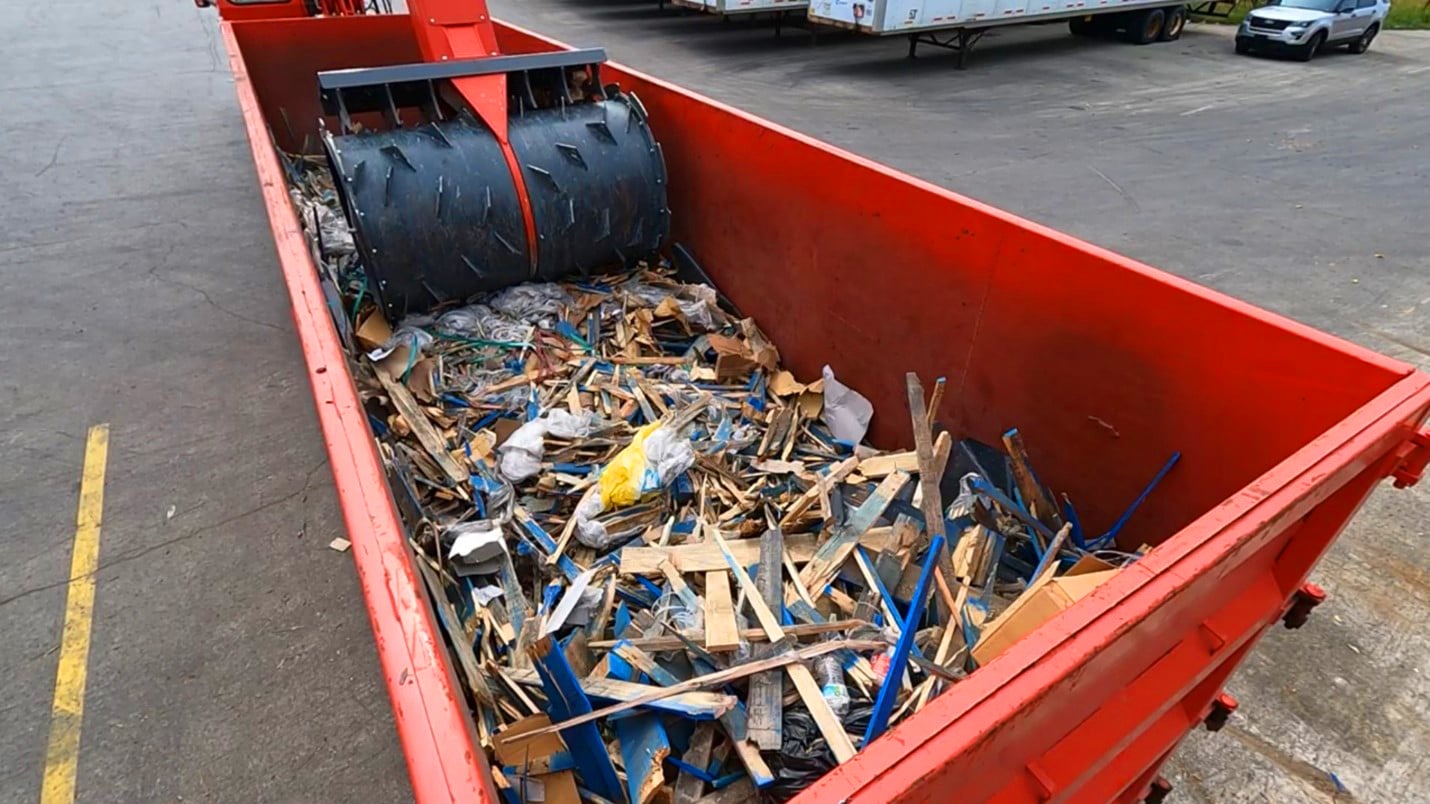
Reduce, Reuse, Recycle
This is a very common phrase within the waste management industry because it so simply embodies everything necessary to create an effective recycling program. Identify areas of excess where alternative solutions are available. Common practices include the following:
- Too many papers involved in meetings? Try digital documents.
- Double sided printing can cut paper consumption in half.
- Remove as many general waste bins as possible from the facility once labeled bins are implemented.
- Build awareness of plans to make sure everyone is on the same page
- Replace single-use coffee cups with reusable mugs
- Provide incentives that encourage employees to participate in recycling efforts to reinforce the behavior.
According to the EPA, 75% of all waste is recyclable materials. Take the time and effort to implement a recycling program and the results will speak for itself.
How Smash My Trash Can Help
We’ve discussed the potential for reducing dumpster waste with a combination of practices and services. Working closely with your operations team to develop a waste management plan or building an internal waste management team can help reach desired goals. Partnering with a mobile compaction service like Smash My Trash simplifies the process and can reduce waste costs. Take the next step toward waste reduction goals and schedule a free dumpster compaction demo today.
Learn More Here
Fill out a quick form for more information or a free demo.
